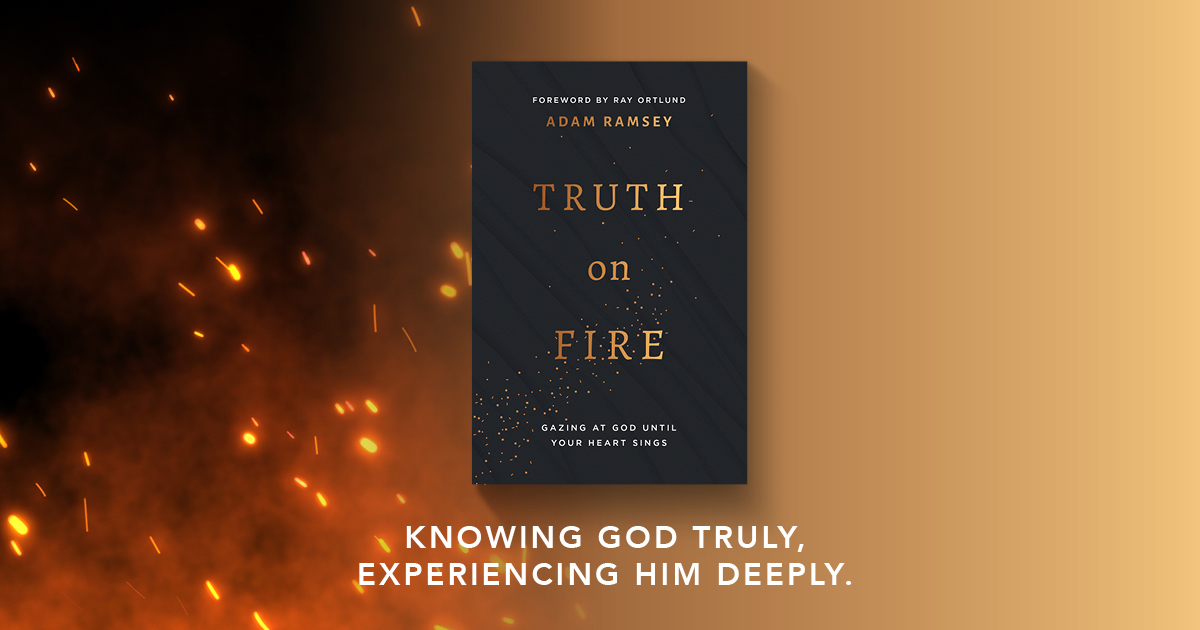In 1866, when John Paton arrived with his family to the New Hebrides in the South Pacific (now Vanuatu), he was setting up his home among a people with a reputation for cannibalism, infanticide, and a never-ending blood bath of tribal warfare. Four years in, Paton and a friend found themselves surrounded by a mob intent on murder and a meal. In those frightful moments he prayed, remembering who was ultimately in charge of his life:
“I realised that I was immortal till my Master’s work with me was done. The assurance came to me, as if a voice out of heaven had spoken, that not a musket would be fired to wound us, not a club prevail to strike us, not a spear leave the hand in which it was held vibrating to be thrown, not an arrow leave the bow, or killing stone the fingers, without the permission of Jesus Christ.”
Paton lost all his possessions in that encounter, but walked away with his life. He lived with assurance and he was ready to die with assurance, because he knew that it was God who sovereignly numbered his days (Psalm 139:16). What gave him peace—and will give us peace when we believe it—is not the promise that everything will go our way but the promise that whatever does come our way, God is sovereign over that, too. The reality of God’s sovereignty is the fear-incinerating, boldness-making, perseverance-producing antidote to everything that would ever trouble us. The reality of God’s sovereignty is the fear-incinerating, boldness-making, perseverance-producing antidote to everything that would ever trouble us. Click Para Twittear
I’m Not in Charge Here (Thank God!)
To those of us who’ve grown up breathing the 21st-century air of autonomy and individualism so prevalent within Western cultures, the realization of God’s sovereignty can feel like coming into contact with a right hook from Mike Tyson. We spend our lives drawing assurance from our ability to control things (or convincing ourselves that we can). We don’t like to acknowledge our helplessness. But whether it is the dependent cry of a newborn, the heartbreak of relational betrayal in our teens, the welcome-to-reality moment of our twenties, the crisis of purpose in our middle years, or the slow acceptance of mortality that comes near the dusk of our days, the sharp edges of life have a way of bursting the illusion we have made for ourselves, that at some level, “I am in charge here.”
Every Christian, to some degree, is a recovering control freak. It is only when we come to the place of accepting our rightful role as creature rather than Creator, servant rather than Master, child rather than Father, that we find the rest we most long for.
So ask yourself: How does Jesus reigning on the throne make me feel? Does it unsettle me or does it comfort me? While it’s unlikely I’d ever say it so bluntly, the truth is that I will only be unsettled by God’s sovereignty if, deep down, I think that he cannot be trusted with such authority. Or that I could do a better job. The first reveals a heart that doesn’t yet know him as he has revealed himself; the second is how the devil became the devil. God being on the throne only threatens me to the degree that my flesh is planning a coup.
Here’s what happens when we really understand the doctrine of God’s sovereignty: his occupation of the throne no longer terrifies us. To the contrary, it satisfies us, like a pillow for a weary head. It refreshes us like a desert oasis to a weary traveler. God’s throne is only repulsive to the rebellious heart. For his children, it is a throne of grace which we now approach with confidence to “receive mercy and find grace to help in time of need” (Heb. 4:16). And the more certain we become of this—that God is sovereign over all things—the more assurance we’ll have to follow him into anything, and trust him with everything.
A Message from Our Future Selves
If we want to live with assurance, we need to look much, much higher than our own grit or ingenuity. We need to look to the same place the rest of heaven has fixed their eyes: “After this I looked, and behold, a great multitude that no one could number . . . crying out with a loud voice, ‘Salvation belongs to our God who sits on the throne, and to the Lamb!’” (Rev. 7:9–10).
Don’t lose sight of the fact that these words were written to Christians undergoing immense and systematic persecution at the end of the first century, under the brutal reign of Emperor Domitian, who had titled himself Dominus et Deus—”Lord and God.” What does the apostle John—writing from exile—give to these Christians to face the troubles of their day? He gives them a vision of Christ on the throne. He gives to God’s people a confidence-inspiring message from their future selves.
And the message of the great redeemed multitude—coming loud and triumphantly from around the throne—is sung back into time with zero degrees of doubt: “Salvation belongs to our God who sits on the throne.” This was God’s mission all along. Every one of his promises was fulfilled. Every one of his purposes was accomplished. And every loss suffered, prayer uttered, and risk taken by his people was never in vain. In the same way the sun shines with uninterrupted constancy above every clouded sky, so is Christ reigning over every difficult circumstance. Click Para Twittear
What will you lean on when dark days come? Or to state it another way, how big is your view of God? Your theology around the sovereignty of God is immensely practical. For there are days in your future that are going to knock you to the ground. There are situations on your horizon, presently unknown to you, that will expose just how not sovereign you are. Disappointment will make its mark, despair will coil around your heart, disease will rob your family, death will strike without warning. Where will you look when the skies turn black?
Here’s where: you look higher.
In the same way the sun shines with uninterrupted constancy above every clouded sky, so is Christ reigning over every difficult circumstance. If God is ultimate in authority, we needn’t be held hostage by our anxieties, because our lives are held securely in the hands of a loving Father, who is also the king. Peter tells us, “Humble yourselves, therefore, under the mighty hand of God . . . casting all your anxieties on him, because he cares for you” (1 Pet. 5:6–7). He is inviting us to exhale all our fears to the God who cares for us, and who can actually do something about them.
Where do you need to breathe in the doctrine of God’s sovereignty, so that you may breathe out everything that frightens you? The risen Jesus is sovereign over everything. You can follow him with total assurance into anything.









